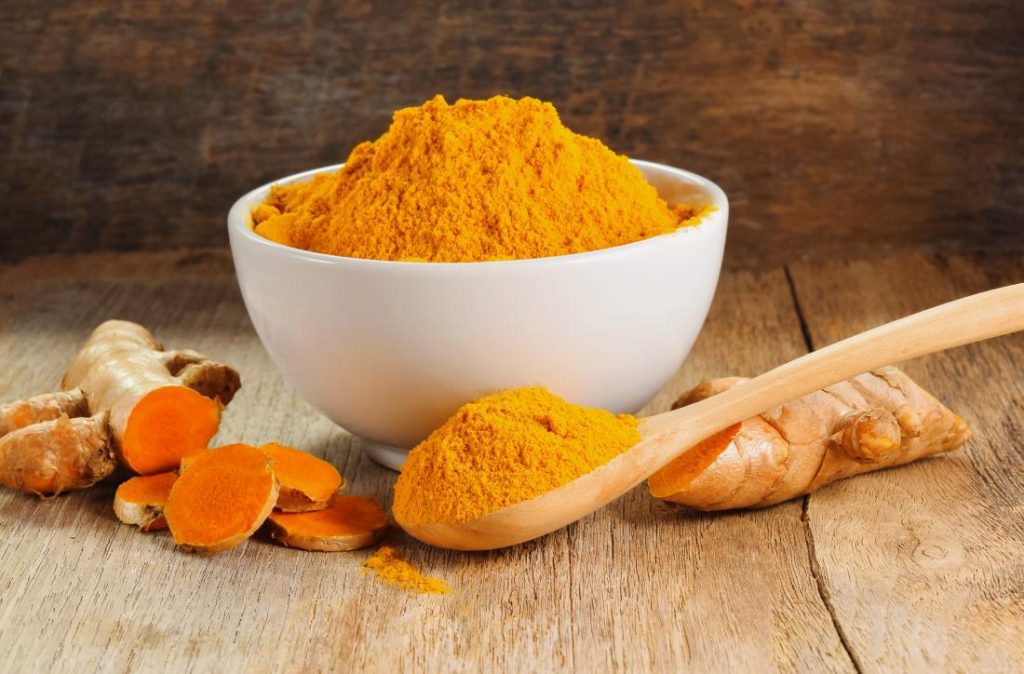As a fitness freak – or even a dabbler in dumbbells – you know the importance of working out and eating healthy.
Both give you the environment necessary to stimulate muscle growth and promote fat loss, all while improving cardiovascular ability and bone structure.
However, these are only pieces of a much larger puzzle.
For the best turmeric supplements, here you go:
While how much muscle and fat you have on your body determines a lot of your health, other factors are at play: blood flow, cognition, and inflammation are just to name a few.
And that last one – inflammation – is really crucial in determining how you feel on a day-to-day basis. If you have chronic inflammation, you won’t ever experience full health.
This leads to a slew of diseases and ailments, which no one wants to deal with (especially when you’re trying to become an athletic beast).
Thankfully, there are natural remedies you can take to regulate inflammation. One of the absolute best foods you can eat for inflammation is almighty turmeric.
Turmeric is wonderful at fighting acute inflammation, as well as giving you other terrific benefits. This is even more prevalent when turmeric is taken in supplement form.
In this article, we’ll go over what turmeric really is, what the main types of turmeric supplements are, what else it’s used for in addition to inflammation control, and whether turmeric is ideal for athletes.
Also, we’ll give you dosage recommendations, warn you of potential side effects, and give you an in-depth guide on the best turmeric supplements out on the market.
Now let’s talk about turmeric!
What is Turmeric?
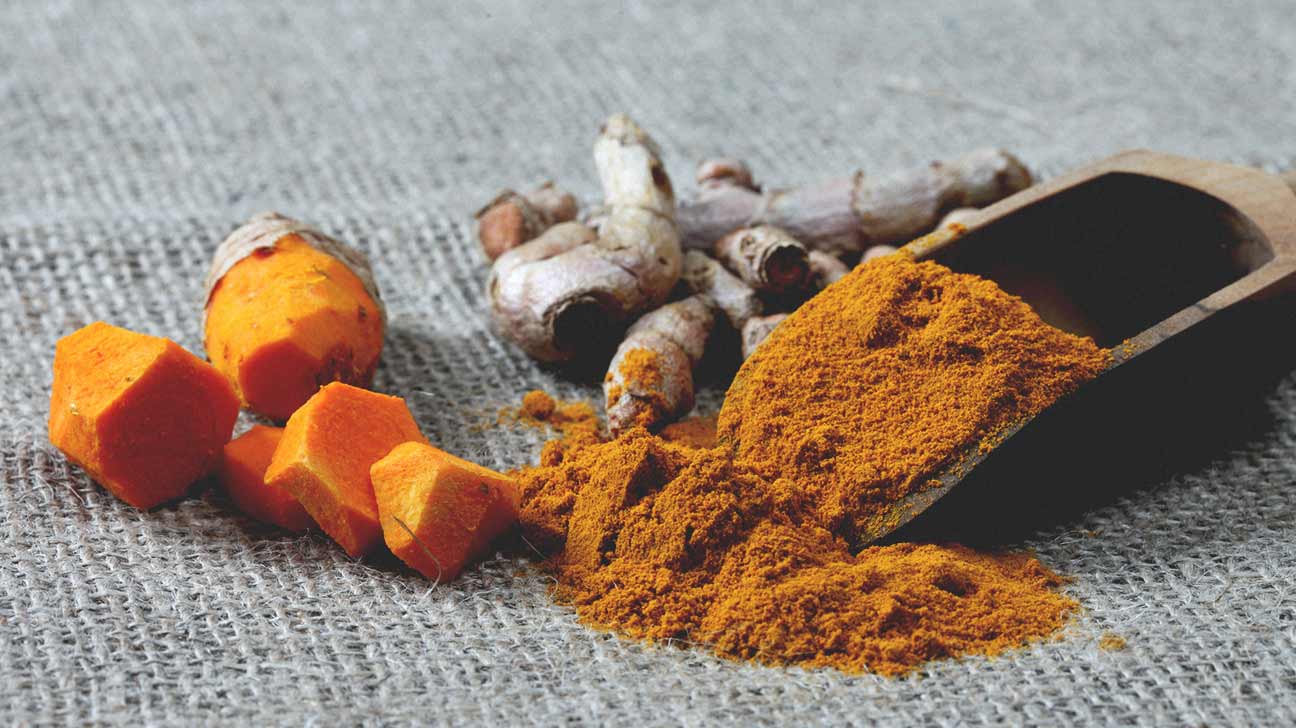
Turmeric is actually a plant that’s part of the ginger family. It’s grown in India, parts of Asia, and Central America.
Originally, turmeric was used in Ayurvedic practices in southern Asia, but now it’s used as a dietary supplement for a slew of conditions.
Normally, turmeric is used in the preparation of food, specifically in curry and other traditional Indian dishes. It’s crazy yellow because of the primary active ingredient, curcuminoids.
This is why turmeric is also used as a natural way to color foods as well as cosmetics.
For the most part, though, turmeric is put in capsules, teas, extracts, and pastes by drying the underground stems.
While the paste is primarily used for skin conditions and cosmetic purposes, the other modes of ingestion are for the anti-inflammatory effects of turmeric.
What Do Turmeric Supplements Do?

Turmeric supplements, as we’ve mentioned briefly, help fight inflammation. But not just any kind of inflammation: the chronic overuse of inflammation, which in today’s world is common for most individuals.
The main ingredient in turmeric, curcuminoid, is a huge player in healing your body and getting you into a better scenario to look and feel great.
We will cover more about what turmeric supplements do for you in the benefits section.
Three Main Types of Turmeric Supplement
In general, turmeric supplements fall into three categories:
- Powdered Root
- Capsules/Bulk Powder
- Turmeric Extract
Let’s dive into each of these…
Turmeric Supplement made from Powdered Roots: These supplements use the root, where the majority of the curcuminoids are located. This is a potent form and one that you should look for when deciding on trying a turmeric product.
Turmeric Capsules and Bulk Powder: While they might not be as potent as either extract or powdered root, the pros of capsules and bulk powder include price and quantity. You don’t have to reorder supplements all the time and you don’t have to break the bank. You’ll have to be okay with potential fillers as well.
Turmeric Extract Supplements: Extract contains high amounts of curcumin, which means you have to be careful with the dosage. (As with every substance, the right amount is medicine, too much is poison.) For a great bang for your buck, turmeric extract is a popular source of this plant.
Turmeric vs. Curcumin?
When discussing the differences between turmeric and curcumin it could be described as simply as turmeric is the spice carrier for the bioactive compound curcumin. Curcumin belongs to a group of compounds called curcuminoids, uniquely occurring compounds which only appear in plants (and are referred to as polyphenols).
It is curcumin which gives turmeric it’s striking yellow colour and also provides the anti-inflammatory properties turmeric is renowned for. Not only does curcumin have anti-inflammatory properties itself but also has the added functional attribute of increasing the body’s antioxidant production.
How Much Curcumin Does Turmeric Have?
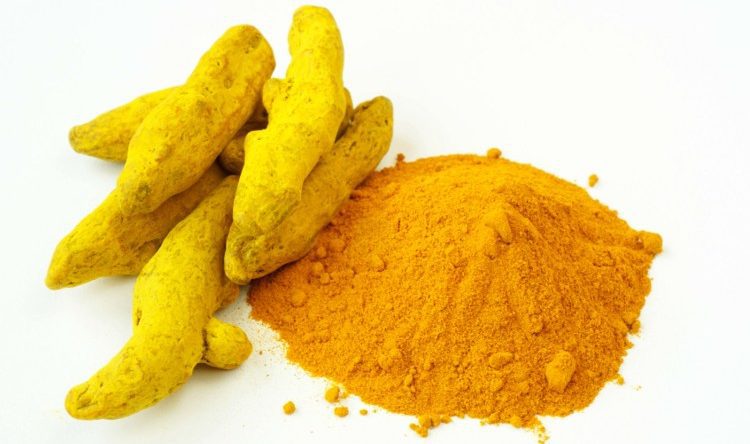
This depends on what type of turmeric supplement you take. Of course, extract and powdered root will have higher concentrations of curcumin, which is a kind of curcuminoid.
For anti-inflammatory benefits, there’s a certain amount of curcuminoids you’ll want to get in your system on a daily basis. The range you’re looking for is 500-1,000mg per day.
As a spice (fresh or ground), turmeric includes 200mg in a single teaspoon. In a supplement, you may see somewhere around 150mg, so turmeric supplements should be used to add to your bottom line of curcuminoids. In fact, in natural turmeric, curcumin only accounts for 3% by weight. It isn’t the cure-all, but it sure gives you that extra boost.
A trick to improve your absorption of the anti-inflammatory curcuminoids is to consume turmeric with black pepper. Regular black pepper helps bring the curcumin to the gut, where it is absorbed and gives you all of that inflammation-fighting goodness. So make sure your supplement has black pepper in it, or have some ready in the wings.
Turmeric Supplements Benefits
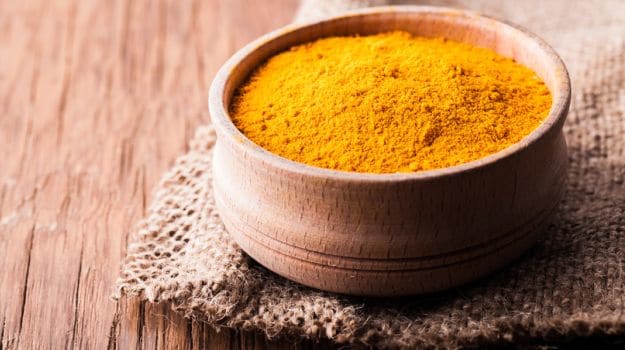
Of course, this spice does more than just fight inflammation. In fact, turmeric has a wide range of advantages when you supplement it:
- Anti-Inflammatory: Let’s get the big one out of the way. Chronic inflammation is terrible in Western societies due to the foods we put in our bodies. Curcumin – the potent ingredient in turmeric – suppresses molecules that promote inflammation. It’s essentially a bioactive substance that helps you fight any inflammation that isn’t doing your body good.
- Improves Antioxidant Capacity: Another great advantage of curcumin is its powerful antioxidant effect. Because of its chemical structure, it can neutralize free radicals, as well as aid our bodies in developing our own antioxidant enzymes. So not only does it provide antioxidant benefits directly, but it upregulates our body to do the same.
- Increases Focus: Brain-derived neurotrophic factor. That’s a mouthful, and it also enhanced brain function and brain health. Neurons form new connections all the time, and BDNF is key to these connections because it’s a growth hormone for your noggin. And guess what? Curcumin increases BDNF(which is Brain-derived neurotrophic factor). So that’s an amazing benefit!
- Lowers Risk of Heart Disease: With anti-inflammatory and antioxidant properties, it’s no wonder that turmeric is tremendous for our heart health. Plus, endothelial function is a major component as to whether or not you’ll have heart disease. Curcumin has been studied to find it helps your endothelial functionTurmeric also decreased the number of heart attacks that bypass patients had after surgery, making it a great supplement to take if you have heart complications.
- Prevents Other Diseases/Cancer: Alzheimer’s, cancer, and arthritis are all best done without. It’s incredibly important to take preventative measures so that you never have to deal with these. Fortunately, with enhanced BDNF, antioxidants, and anti-inflammatory properties, turmeric is a great help to disease prevention. Research has shown that turmeric helps treat the symptoms of arthritis and curcuminoids can cross the blood-brain barrier and improve the process of Alzheimer’s. As for cancer, turmeric changes things at the molecular level, leading to prevention and even treatment.
- Fights Depression: Apparently, curcumin is also a decent antidepressant. Depression is usually linked to low levels of BDNF, which we already know is improved with turmeric supplementation. However, it looks like curcumin also elevates serotonin (which helps you sleep) and dopamine (the happy hormone). These are both downregulated in people with depression.
- Delays Aging: Another huge benefit to turmeric, all of curcumin’s assistance with disease prevention and fight against inflammation helps with aging. Longevity is vital to everybody’s wellbeing. By avoiding the pitfalls of older age through less oxidative stress and reduced inflammation, adding turmeric to your arsenal is terrific for keeping you young and healthy.
These are the main benefits of turmeric. Obviously, this spice packs quite a punch and should be taken seriously as a supplement.
Who is it for?
There are a range of populations which could benefit from increased turmeric or curcumin intake, including both individuals searching for improvements in physiological and or psychological health.
Whilst popular media would suggest that it may only be of benefit for those with a keen interest in natural health, the truth is, is that many individuals, irrespective of their interest would benefit. From the injured, to the elderly, to those with digestive disorders or even those with arthritic conditions, turmeric or curcumin could prove to have a significantly positive influence on a diverse spectrum of health outcomes.
Increased turmeric or curcumin intake has been associated with benefitting a range of physical conditions;
- Osteoarthritis
- Chronic Pain
- Type II Diabetes
- High blood pressure
- Functionality in the elderly
- Colorectal cancer risk
- Prostate cancer risk
- Kidney function (in those with reduced functionality)
- Irritable Bowel Syndrome
This is to name a few, but it would be unjust to highlight some of the improvements seen in neuropsychiatric related health states following increased intake of turmeric and curcumin too;
- Depression
- Anxiety
- Quality of life
- Cognitive Decline
Are Turmeric Supplements Good for Athletes?

Athletic populations may also benefit from turmeric or curcumin supplementation. Many athletes deal with similar physiological and psychological issues as those seen in the general population however, they have their own unique considerations as well; namely, the increased performance of exercise and the requirement for optimized recovery.
Athletes would no doubt improve an athlete’s output and performance. A study has found that “curcumin reduces muscle damage and soreness following muscle-damaging exercise,” making it ideal for those bodybuilders or Olympic lifters who want to cram as many workouts in a week as possible.
In fact, it’d work wonders for sports athletes who work out one day and play their sport the next.
Plus, keeping yourself free of disease and improving mental function is, of course, a boon for when you’re strategizing and performing in your given athletic field.
(As with everything, this is not an excuse to go crazy with the turmeric supplement. The poison is in the dosage, so treat turmeric like salt and use only enough.)
Turmeric Supplements Dosage
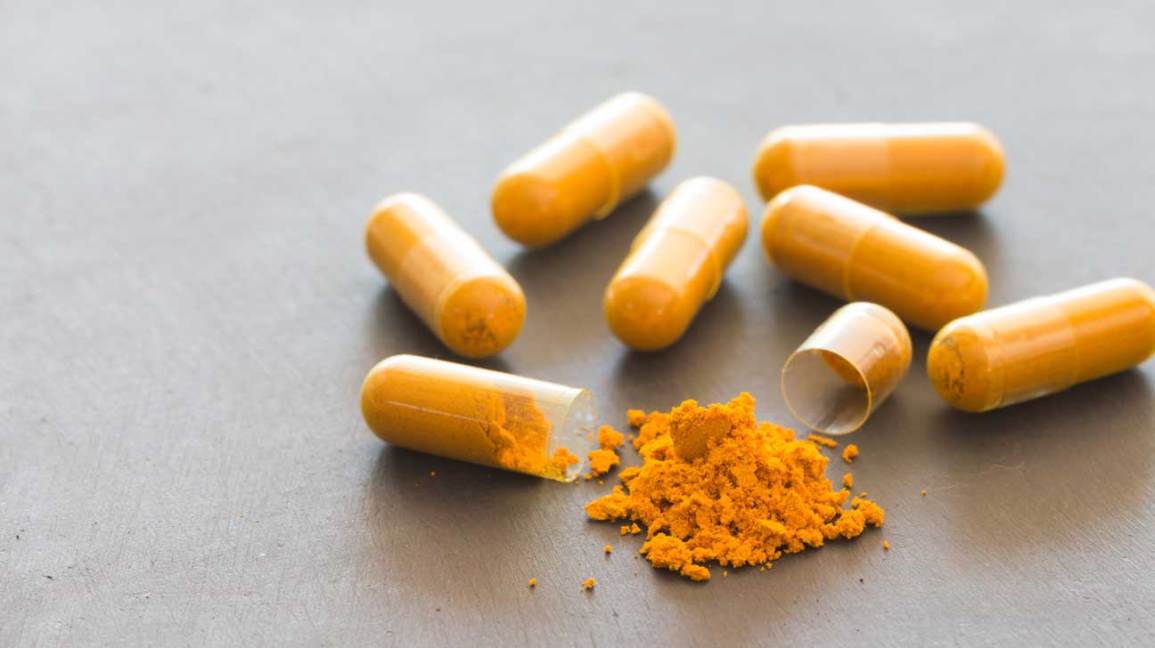
How much turmeric do you need per day? It looks like 500-2,000mg of turmeric is the sweet spot, with a decent concentration of the turmeric being curcuminoids or curcumin. You can also take less in a supplement if you incorporate turmeric as a spice in your cooking. This would be the route we’d recommend, as turmeric has great flavor and is more natural as a spice than as a supplement.
When should you take it? For turmeric specifically, it’s ideal to take twice daily, once in the morning and once before bedtime. If you want to get it all out of the way in one dose, bedtime is the preferred option. The antioxidants within turmeric work well when the body is resting (it’s your prime recovery time).
Length of time should be considered too. You want to supplement turmeric for about 6-8 weeks and then take a week or two off so that your body can produce its own antioxidants and reduce inflammation naturally. This will also keep you from having too much dependence on turmeric supplements for keeping you healthy.
Turmeric Supplement for Weight Loss?
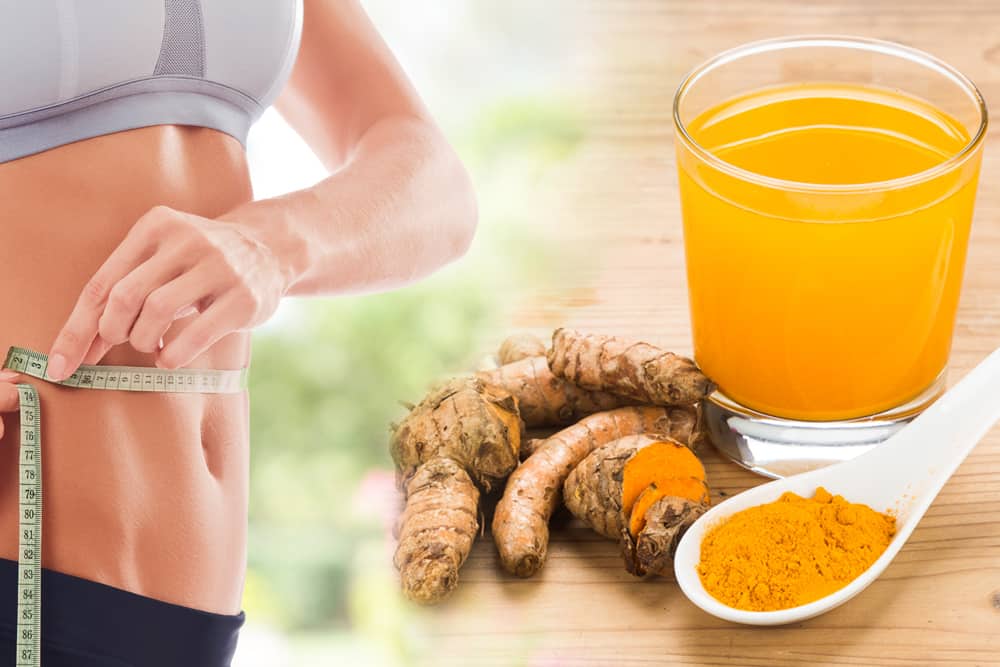
Turmeric isn’t known for fat loss, per se, but it helps with the inflammation related to obesity, as well as aid with stomach problems and metabolic disorders.
Although it may not affect how our body breaks down and metabolizes adipose tissue (stored fat) directly, it may provide indirect benefit. Increased turmeric or curcumin intake has been shown to improve blood glucose regulation or, more widely referred to as, your “blood sugar levels”. Improvements in this health marker can lead to a reduction in snacking. Poor blood glucose regulation leads to increased perception of fatigue and weakness, which may lead to uncontrolled snacking. If this puts you into a calorie surplus for that day it will contribute to weight gain. If we better control blood sugar regulation then the risk of uncontrolled snacking is reduced as are the consequential risks of eating in a calorie surplus.
There isn’t a set amount you should aim for in regards to slimming down, but if you follow the same dosing recommendations as above, you should experience a slight boost in metabolic function, a decrease in inflammation throughout the gut and digestive system, and an added flavor to your self-prepared dishes.
Features to Look Out for When Choosing Turmeric Supplements
Turmeric itself is not an overly expensive supplement to produce so ensuring you’re getting the value for your money is important. Many companies, as is unfortunately become the calling card of the supplement industry, will be banking on you investing in the media hype surrounding turmeric whilst selling you a sub-par product with little to no health benefit.
Here are certain things to look out for when choosing a product; not only so that you get your money’s worth but also so that you are receiving some kind of health benefit from taking the supplement.
Form
Whilst turmeric itself is fairly healthy and will provide some benefit to health, it really is the curcuminoids, mainly curcumin, that you’re shooting for when investing in a turmeric or curcumin supplement.
Curcumin itself is poorly absorbed, however this can be significantly improved with either the inclusion of black pepper extract (piperine) or to combine it with certain lipids (fats).
Potency
Potency is critical for effectiveness. An under-dosed product may be virtually worthless and or at least prove to be significantly less beneficial than what has been reported.
Studies typically use doses of 500–2,000 mg of turmeric per day, often in the form of an extract with a curcumin concentration that is much higher than the amounts naturally occurring in foods. There is however no consensus on an exact dosage, as various health conditions have shown benefit with a range of dosages.
More may not always be better either, as long-term studies evaluating the safety of higher dosages of turmeric and curcumin have not been conducted.
The World Health Organization (WHO) has determined 1.4 mg per pound (0–3 mg/kg) of body weight an acceptable daily intake however so at least a rough upper limit has been established.
With regards to curcumin, the dosage is dependent on the complimentary ingredient;
To supplement curcumin with piperine, it is recommended to take 1,500 mg of curcumin and 60 mg of piperine per day split into three servings.
To supplement curcumin with lipids, it is recommended to take between 400 – 1000mg a day (depending on the added ingredient) split into two servings.
Added ingredients
The added ingredients in turmeric supplements, in this case piperine or lipids, effect the absorption of the bioactive compounds.
Piperine for example, has been shown to increase the absorption and bioavailability of curcumin by up to 2000%
Oils of the turmeric root appear to enhance bioavailability too. One such product, BCM-95® a proprietary blend of these oils and curcumin, has had numerous pieces of published research to support this thesis. It is recommended to take 500mg twice daily.
Combining curcumin with soya lecithin, as has been produced with the product Meriva® can also increase bioavailability. Studies have shown bioavailability to increase 20 fold over curcumin in isolation. It is recommended to take 200–500 mg twice a day
Vegetarian, gluten-free, dairy-free, soy-free
The spice itself and its isolated bioactive compound are completely fine to take without running the risk of crossing any dietary restriction lines or effecting you if you do have an intolerance or allergy.
One thing to look out for would be the capsule they come in. Many brands use a gelatine capsule which would obviously conflict with a vegetarian or vegan approach (as well as some religious cultures).
It’d be advised to avoid the Meriva product if you do have issues surrounding soy / soya intake, however the alternatives are equally if not more effective.
Price
Where value for money comes into play is with price. As we mentioned, some companies will bank on the name and sell you a reduced quality product. Some will even just capsulate turmeric and sell that for similar prices to the optimized formulations and isolated curcumin extracts. The difference in quality, bioavailability, manufacturing and effectiveness is significant so be mindful of this when analysing labels. You don’t want to be spending 20 – 30$ on what is essentially just spice flavouring.
The concentrated, evidence-based formulations alluded to typically come in around this pricing range. It is up to you as the consumer however to be vigilant when identifying these products. Look for the keywords; curcumin, bioperine (trademarked name for piperine used by some companies), BCM-95 and or Meriva when selecting your given supplement. If you can’t see these terms and or staff / customer service can’t help you identify them on that product or give a rationale as to why they aren’t on that product then simply don’t waste your money.
Turmeric Supplements Side Effects
Like we said before, too much of a good thing isn’t a good thing. Usually, turmeric has some side effects, but they aren’t an issue unless you overdose on the supplementation.

Nevertheless, here are the main problems when taking turmeric:
- Gastrointestinal issues (when taken in high doses or for long periods of time)
- Nausea or dizziness
- Diarrhea
- Potential abnormal heart rhythm (this was with high doses of turmeric)
In addition, people with certain preexisting conditions should avoid supplementing turmeric too much, for fear of further complications.
This includes women who are pregnant and those with gallbladder problems, bleeding problems, diabetes, gastroesophageal reflux disease (GERD), any hormone-sensitive conditions (especially women-centric cancers), infertility, iron deficiency, and anyone with a scheduled surgery in the near future.
Can Turmeric Supplements Interact with Other Medications?
The short answer is yes, turmeric supplements can interfere with certain medications. The main ones you want to look out for include medications changed by the liver, diabetes medication, medications that slow blood clotting, and specific drugs like sulfasalazine, tacrolimus, and talinolol.
All of the above have a moderate reaction when taken with turmeric; please consult your doctor before mixing these with a turmeric supplement.
There are also drugs that have minor interactions with turmeric, such as docetaxel, estrogens, medications moved by pumps in cells, norfloxacin, and paclitaxel.
Again, consult with your primary doctor on whether or not you can take turmeric alongside your other medication.
Top Turmeric Supplements Reviews
BioSchwartz Turmeric Curcumin with Bioperine 1500mg
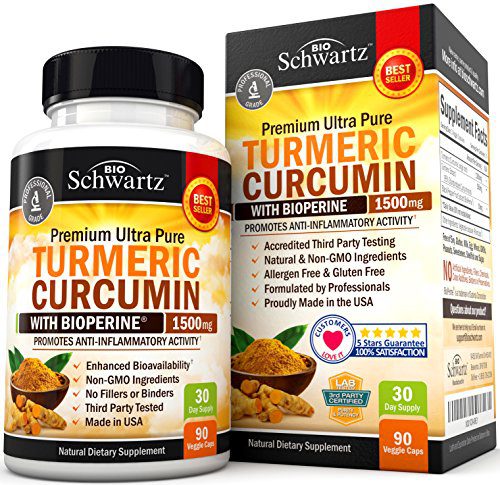
First up on our list is a turmeric supplement by a company called BioSchwartz.
Their Turmeric Curcumin with Bioperine 1500mg has a lot inside their capsules, so let’s unpack it.
First, it has 1,350mg of turmeric, which they say is specifically Curcuma Longa root. Not only that, but it also has 150mg of turmeric extract, which is 95% standardized curcuminoid.
So you’re getting the most potent piece of turmeric on top of the regular-strength stuff. To finish it off, there’s 10mg of Bioperine, a.k.a. black pepper fruit extract.
This, as we stated earlier, helps you absorb the other two active ingredients.
With Turmeric Curcumin, you get 30 servings per bottle at three veggie capsules per serving. A great way to get this dose in is to take one in the morning and two in the evening, right before going to sleep.
And with no filler, binders, the fact that it’s GMO, and it’s all natural, you’re getting a quality product all around.
BioSchwartz definitely takes care of you in the turmeric department. Give their amazing supplement a go and see if it makes a difference to your health!
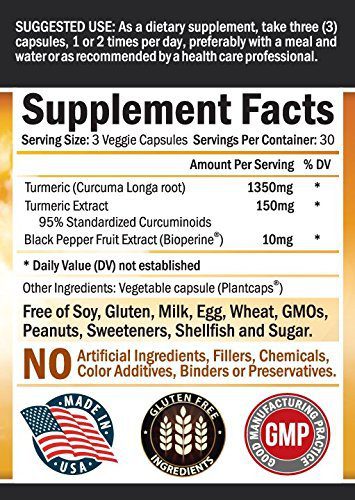
Get BioSchwartz Turmeric Curcumin on Amazon.com
Turmeric Curcumin Max Potency
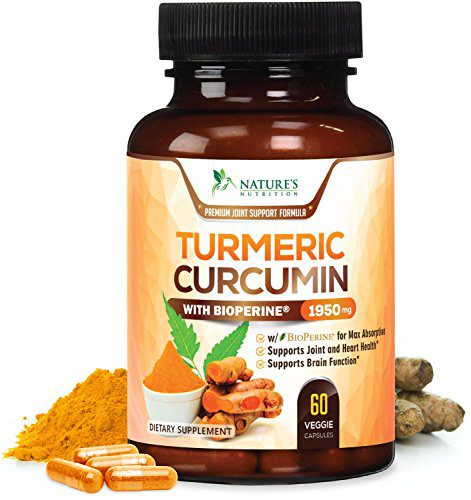
Next is from Nature’s Nutrition, a supplement with “Max Potency” in terms of turmeric punch.
This one seems to outdo the previous supplement, as it contains 1,800mg of traditional turmeric root, 150mg of 95% curcuminoid-based turmeric extract, and 15mg of Bioperine.
You also have to take the same amount of capsules per dosage (three), so the strategy remains the same: take one when you wake up and two in the evening before bed.
What stands out about this supplement is that you have a 100% money-back guarantee; so, if you don’t see any results or feel any better, you can get a full refund.
On Amazon, you can get this supplement in either a 60-capsule bottle (20 servings), a 120-capsule bottle (40 servings), or a 180-capsule bottle (60 servings, or two months’ worth).
Of course, the higher you go, the less you pay per pill.
Another solid, impressive turmeric supplement, Turmeric Curcumin Max Potency by Nature’s Nutrition should definitely be in your supplement stack.
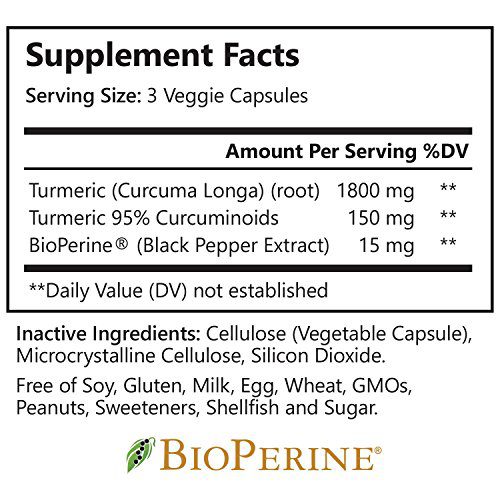
Get Natures Nutrition Turmeric Curcumin on Amazon.com
Turmeric Curcumin 1,000mg
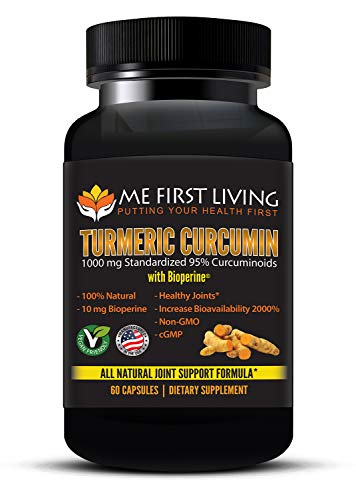
Finally, Me First Living comes out swinging with a great turmeric supplement, Turmeric Curcumin 1,000mg.
This particular formula seems to be even more powerful; it includes 1,000mg of turmeric extract, where 95% of it is curcuminoids.
(For reference, the other supplements had only 150mg of their concoction be extract instead of root.) That is a crazy amount of curcuminoids!
It also contains the appropriate 10mg of black pepper fruit extract to aid in absorbing the curcuminoids within your gut.
Interestingly enough, this supplement has leucine in it as well.
This essential amino acid helps with the biosynthesis of proteins, so it’s a nice added bonus to the supplement.
You only have to take two pills to get the desired dose, so splitting them up between the morning and evening is your best bet for an optimized result.
You get 30 servings per bottle, which seems to be standard too.
Turmeric Curcumin 1,000mg by Me First Living has an unheard of amount of curcuminoid in their formula, so it would absolutely give you all of the benefits listed above and then some.
They are for sure worth looking into further in personal study.
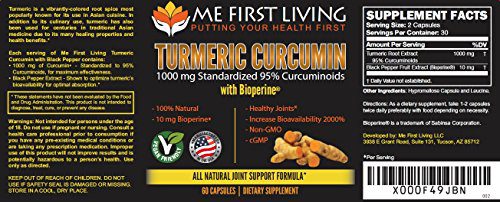
Get Me First Living Turmeric Curcumin on Amazon.com
Consumer Reports for Best Turmeric Supplement
Whilst we are confident in the products which we’ve just recommended we appreciate that some of our audience would prefer a completely unbiased opinion on which turmeric supplements are “best” (or at least are meeting their potency and purity claims).
Consumer Reports is an independent, non-profit member organization that works side by side with consumers for truth, transparency, and fairness in the marketplace. They conduct their own third party, unbiased testing to analyse whether products meet their label claims and contain no possibly hazardous and or non-mentioned ingredients.
Their report on turmeric was published in October 2019 and makes recommendations for eleven brands of turmeric supplement following stringent testing. These include the widely popular brands of GNC, Nature’s Way and Nature’s Bounty.
FAQs Related to Turmeric Supplements
Should I take turmeric supplements with food?
Taking turmeric or curcumin supplements with food would be advised and could increase bioavailability and therefore effectiveness.
Is there anyone who shouldn’t take turmeric supplements?
Generally speaking, no. Dosages of up to 12g per day of turmeric and curcumin have been shown to have no serious side effects with only minor gastrointestinal distress and yellow colouring of the stool reported.
Pregnant women should consult their respective healthcare practitioner before using these supplements however as there is a possible risk of causing lower birth weight (however these studies were in mice and results may not directly transfer to a human model).
To date there has been no clinical trials conducted showing toxicity of turmeric or curcumin.
What are the best turmeric supplements to take?
As alluded to previously, those supplements which contain complimentary components which increase the bioavailability of the bioactive compounds. Look for supplements containing piperine, essential oils (of the turmeric root) and soya lecithin when making your choice (or ask a member of staff / customer service to assist and detail these requirements to them).
Which is better curcumin or turmeric?
That depends entirely on what your aim is. Curcumin is arguably the better of the two if you had to choose, based on the fact it is the primary bioactive compound which is responsible for many of the health benefits attached to turmeric however turmeric itself may confer some unique benefits that curcumin does not. If you can incorporate both into your diet that may be the best route, however, from a cost effectiveness perspective, curcumin may have the edge.
Do turmeric supplements work?
Yes, there is a large body of evidence to support their effectiveness in a myriad of health issues. Again however, this also depends on the product you purchase.
Is it safe to take turmeric every day?
Yes, just be mindful to stick to the recommended dosages. Extremely high dosages risk toxicity, especially when taking it in levels beyond what has been researched. Common sense should prevail here; stick to the recommendations we’ve laid out and those given to you by the company supplying the product.
Conclusion
With all of this information, it’s enough to make your head spin. The main takeaway should be this, though: Turmeric is wonderful for your body and you should do everything in your power to get more of the stuff.
A powerful anti-inflammatory agent, rich in antioxidants, and it improves brain-derived neurotrophic factor?
While these don’t seem all too crucial for training and athletic purposes, these advantages affect how you recover and how mentally ready you are for tackling grueling workouts.
Turmeric gets your body primed and prepared for anything you throw at it, while also keeping you healthy from diseases that would deteriorate your muscle gains quickly.

